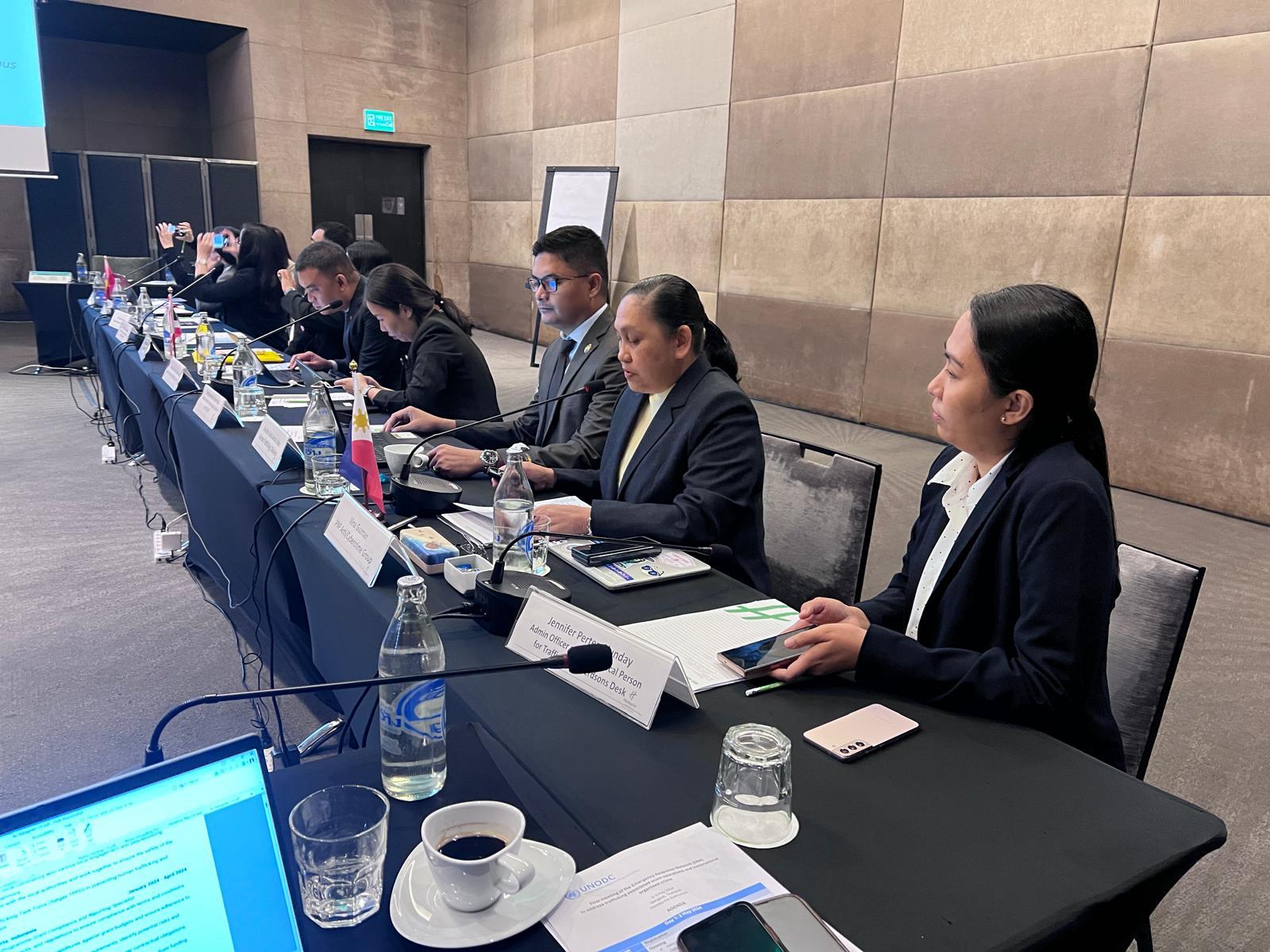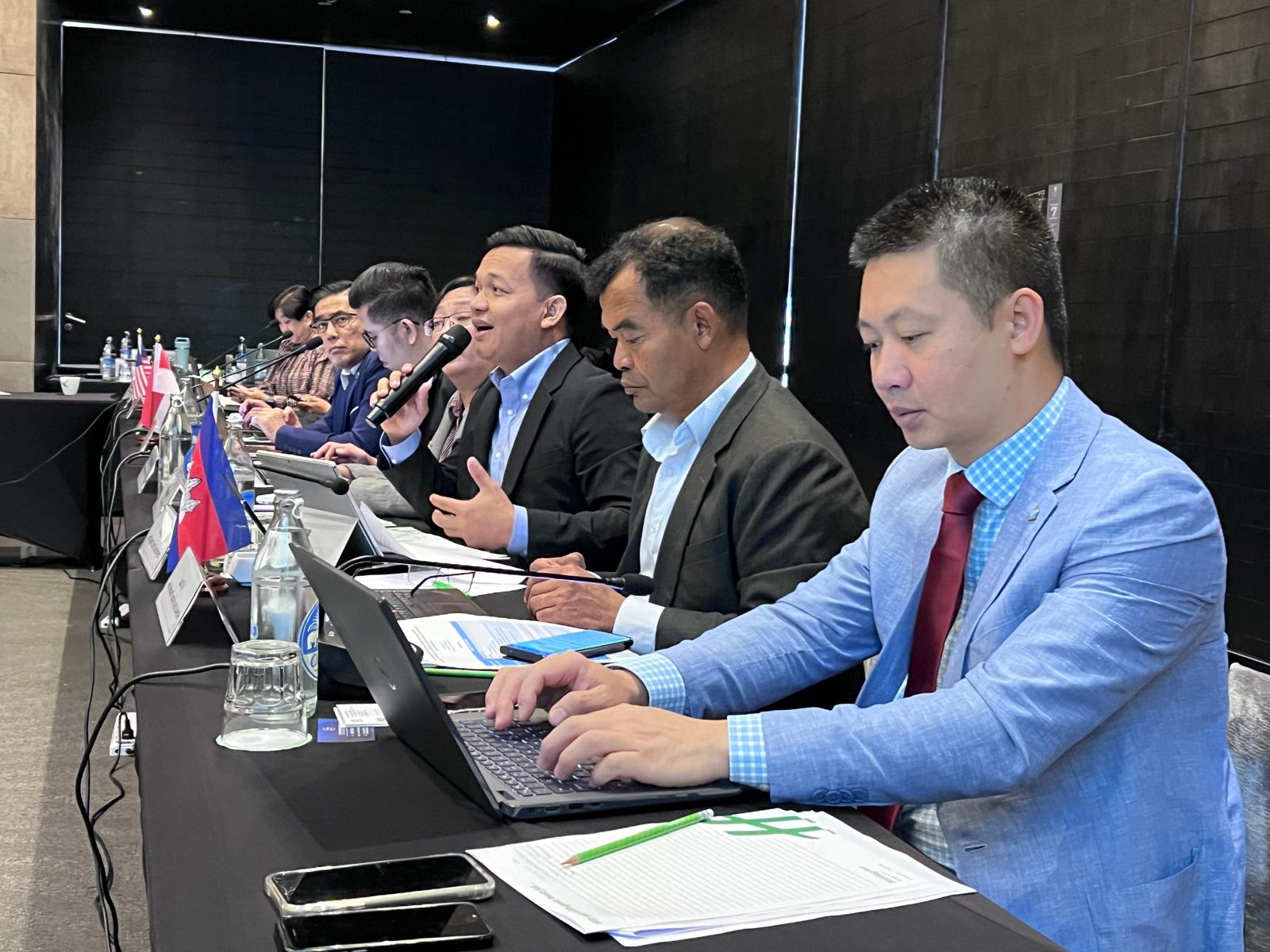
Bangkok (Thailand), 15 May 2024 – In a new effort to fight human trafficking for forced criminal activities —particularly scam operations— UNODC has established an Emergency Response Network (ERN) to tackle the rising transnational criminality in Southeast Asia. The network aims to enhance cooperation and coordination among law enforcement agencies across the region.
“In the last several years, Southeast Asia has faced unprecedented challenges from powerful transnational criminal groups involved in money laundering, cybercrimes, kidnapping, extortion, and torture,” said Rebecca Miller, Regional Coordinator for countering human trafficking and migrant smuggling at UNODC’s Regional Office for Southeast Asia and the Pacific. “The establishment of the ERN is essential for addressing the sophisticated and often mobile nature of transnational organized crime in the region,” she added.
Particularly alarming is the trend of human trafficking for forced criminality, where individuals are deceived and coerced into participating in criminal activities such as romance scams, cryptocurrency fraud, and illegal gambling. The collaborative regional effort is designed to dismantle scam compounds, identify and rescue victims, and bolster both domestic and regional investigations. Through the rapid exchange of intelligence on criminal networks, critical issues can be addressed when emergencies occur, including victims’ rescue

The ERN will serve as a platform for the timely exchange of information among law enforcement agencies from Cambodia, Indonesia, Lao PDR, Malaysia, the Philippines, Thailand, and Viet Nam. The network will connect nominated police officers specialized in anti-trafficking in persons, those specialized in cybercrime, and INTERPOL National Central Bureau officials from each participating country. Direct police-to-police communication will ensure a coordinated response, with UNODC and INTERPOL playing supporting roles.
“This initiative will benefit the Philippines, particularly the law enforcement agencies, as it fosters collaborative strategies, enhanced information sharing, and strengthens cross-border cooperation to dismantle trafficking networks and protect vulnerable individuals,” said Police Colonel Vina Habana Guzman, Chief of Staff at the Anti-Cybercrime Group of the Philippine National Police, who participated in the network’s inception meeting held in Bangkok last week. “We are truly committed to this continued partnership with regional counterparts to achieve our shared goals of justice and security,” she added.
Coordination meetings will take place in the coming months, including capacity-building sessions with experts on topics identified by ERN members, such as financial investigations and digital evidence. The network is funded by the Government of Japan.
Access our latest report on casinos, money laundering and transnational organized crime in East and Southeast Asia here.
Access our September 2023 report on casinos, cyberfraud, and trafficking in persons for forced criminality in Southeast Asia here.
Access UNODC’s key indicators of trafficking in persons for forced criminality to commit cyber enabled crimes here.